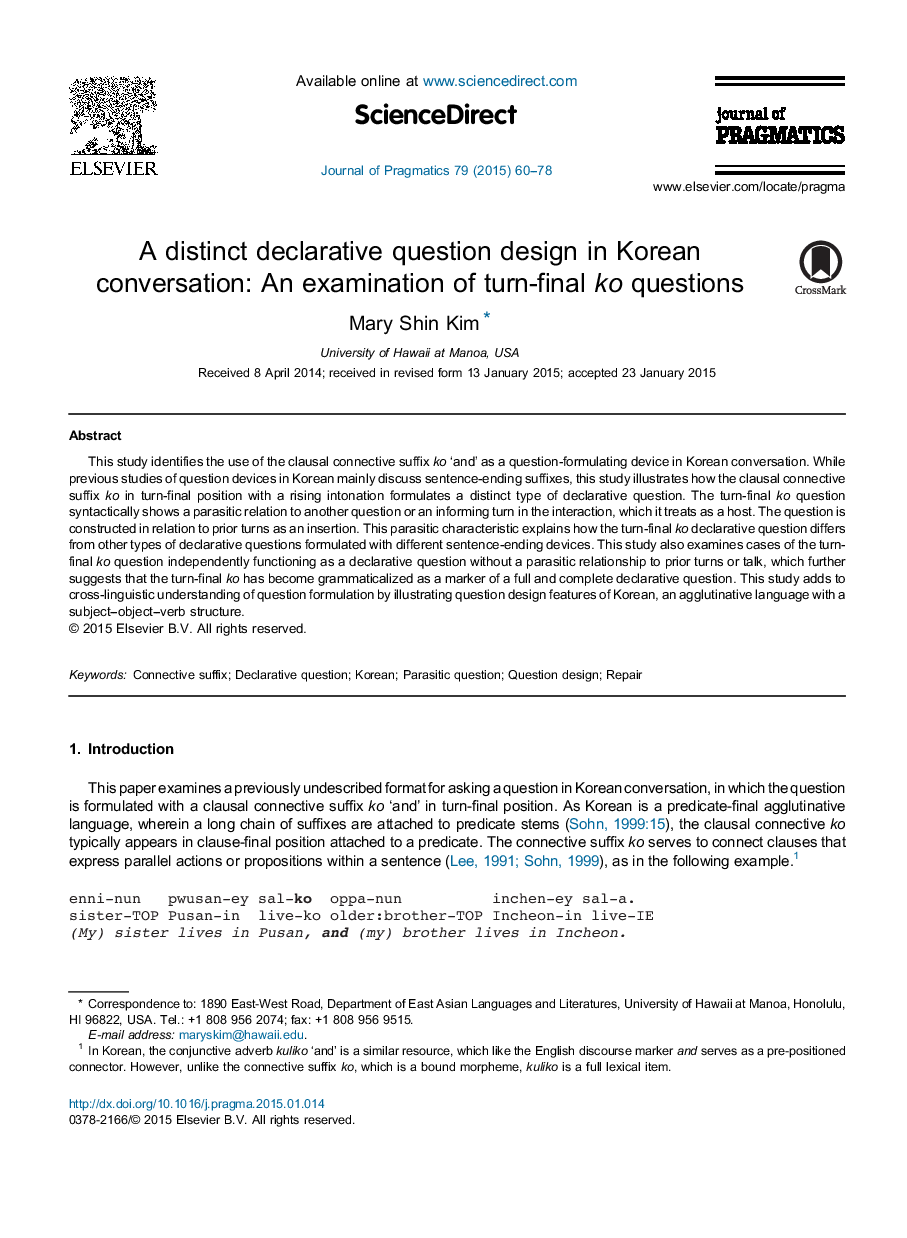| کد مقاله | کد نشریه | سال انتشار | مقاله انگلیسی | نسخه تمام متن |
|---|---|---|---|---|
| 932638 | 1474721 | 2015 | 19 صفحه PDF | دانلود رایگان |
• This article illustrates a previously undescribed question format in Korean.
• The connective suffix ko formulates a distinct type of declarative question.
• A turn-final ko question shows a parasitic relationship to prior turns or talk.
This study identifies the use of the clausal connective suffix ko ‘and’ as a question-formulating device in Korean conversation. While previous studies of question devices in Korean mainly discuss sentence-ending suffixes, this study illustrates how the clausal connective suffix ko in turn-final position with a rising intonation formulates a distinct type of declarative question. The turn-final ko question syntactically shows a parasitic relation to another question or an informing turn in the interaction, which it treats as a host. The question is constructed in relation to prior turns as an insertion. This parasitic characteristic explains how the turn-final ko declarative question differs from other types of declarative questions formulated with different sentence-ending devices. This study also examines cases of the turn-final ko question independently functioning as a declarative question without a parasitic relationship to prior turns or talk, which further suggests that the turn-final ko has become grammaticalized as a marker of a full and complete declarative question. This study adds to cross-linguistic understanding of question formulation by illustrating question design features of Korean, an agglutinative language with a subject–object–verb structure.
Journal: Journal of Pragmatics - Volume 79, April 2015, Pages 60–78
